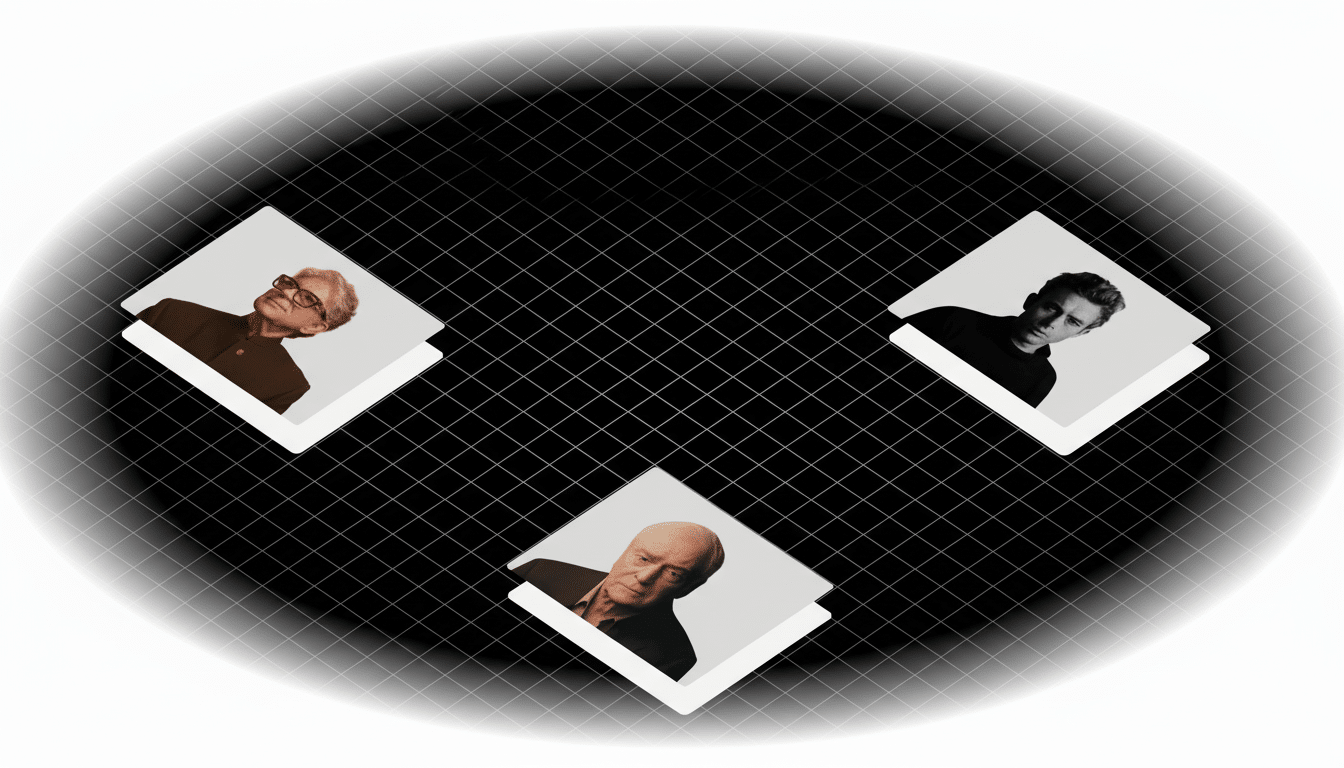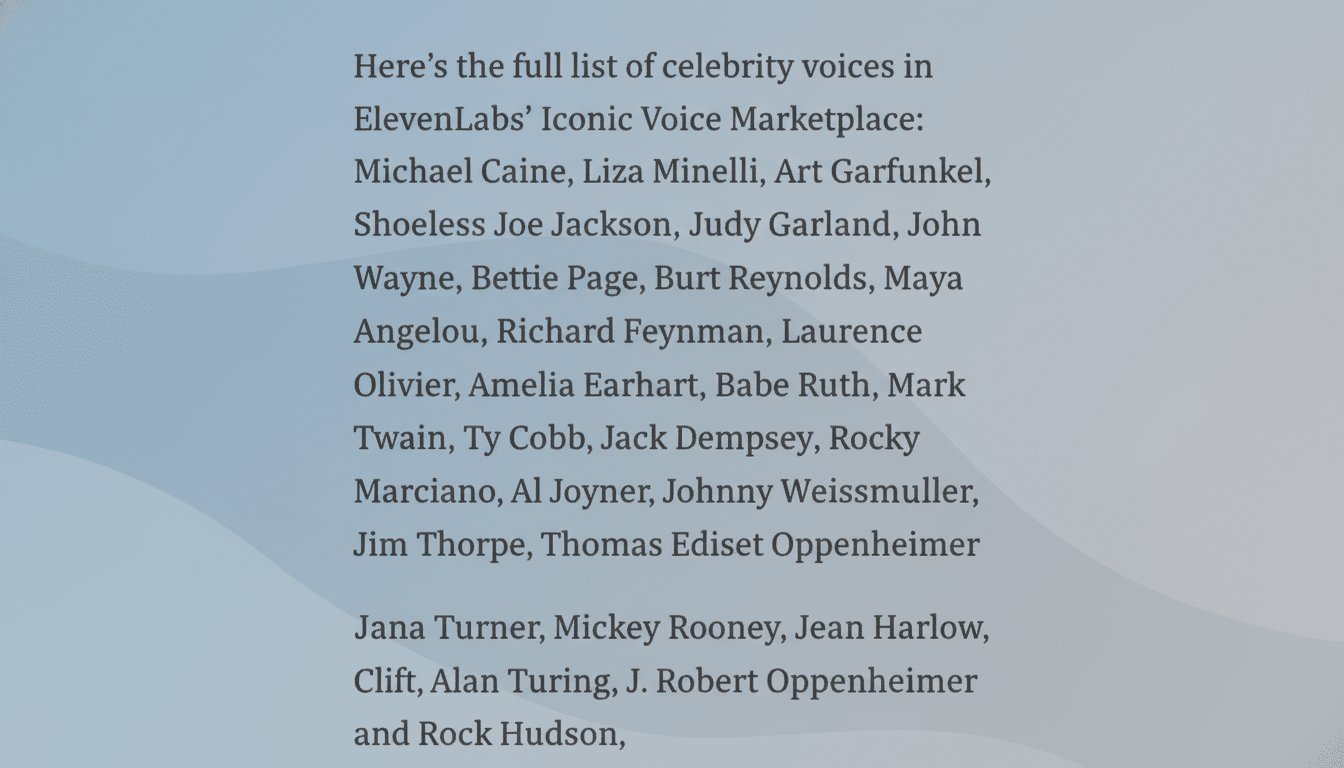Matthew McConaughey and Michael Caine are not just using their signature voices to work in the field of artificial intelligence. The two actors have licensed their voice likenesses to ElevenLabs, an AI audio startup launching a consent-based marketplace for celebrity voice clones; McConaughey is making an investment into the startup as well.
As first reported by Variety, McConaughey will deploy ElevenLabs to produce a Spanish-language audio version of his newsletter “Lyrics of Livin’” without having to record the publication in its entirety himself. In a statement, he portrayed the move as an attempt to reach a wider audience without diluting his own sound or style.

In a Consent-Based Marketplace for Iconic Voices
The Iconic Voice Marketplace by ElevenLabs allows approved creators, studios, and brands to apply for access to AI-cloned voices from its lineup of “iconic voices.”
At launch, the company says that there are 28 celebrity voices available, including Caine and the estates or rightsholders to Judy Garland, John Wayne, Liza Minnelli, Laurence Olivier, Maya Angelou, and Babe Ruth. Included in the lineup are historical figures like Thomas Edison and Mark Twain, elements in the patchwork of posthumous publicity rights that make such contracts possible.
Unlike the unauthorized deepfakes which have already sparked controversy across entertainment, this marketplace focuses on explicit consent and approval gates before any project will go live. That approach aligns with where unions and rights groups have argued the synthetic media tools should grow to, as synthetic media tech grows up fast.
Why This Matters for Podcasts and Audio Today
For podcasters, audiobook producers, and networks, voice cloning can localize content at scale, spin up limited-run series with celebrity-impersonation hosts, or personalize ads without making talent do multiple studio reads. McConaughey’s Spanish version is a “best practice” illustration of how the same personality can access more than one market without degradation in performance quality.
The economics are compelling. According to the Interactive Advertising Bureau, U.S. podcast ad revenue cracked $2.3 billion recently, with double-digit growth expected for the foreseeable future as brands continue to search out more targeted audio. Celebrity-endorsed AI voices may accelerate that trend, reducing the cost of production while preserving association with premium talent — so long as labels and consent are transparent enough to listeners.
The Industry Context and Notable Precedents
Entertainment unions have been going round and round about how to put guardrails around digital replicas for the last couple of contract cycles. The most recent TV and theatrical agreement from SAG-AFTRA codifies consent and compensation around synthetic performances, while the Writers Guild achieved similar protections for AI with its work on script workflows. Before that, Lucasfilm and voice cloning experts had collaborated with James Earl Jones to ethically store the audio essence of the character of Darth Vader — a common example given with regard to how legacy performances might live on with consent and compensation.

The other side of the coin is reputational risk when consent is unclear. The public squabbling over an AI assistant voice that sounded like Scarlett Johansson served as a reminder of just how touchy fans and performers can be about vocal similarities. Amid all that, ElevenLabs’ gatekept marketplace is not just entrepreneurial but also a political statement — about how AI should be incorporated into entertainment.
Governance, Verification and Risk in AI Audio
Stewardship will be the arbiter of whether these sorts of deals scale. ElevenLabs has released a Speech Classifier, which aims to aid in the identification of audio created within its platform, and the industry is marching toward standards around provenance, known as C2PA, to keep tabs on how media is made. Those tools are not foolproof, but they are increasingly table stakes at a time when synthetic audio is proliferating in election cycles and fraud warnings.
Legal frameworks also matter. States including California allow posthumous publicity rights for up to 70 years, which means the estates of performers like Garland and Wayne can approve licensed clones. But rules are so disparate from place to place, there is a tangle of compliance required for release in alternative territories, and the onus remains for clear, project-by-project approvals.
What Comes Next for Celebrity-Approved AI Voices
If the marketplace takes off, there are likely to be standardized union-compliant contracts, revenue-sharing norms for one-off ad reads and long-form narration, and a lot of multilingual adaptations happening at a fast clip.
The larger shift may be commercial: creators licensing their own voices ever more as programmable assets, albeit with a veto over context and tone.
For the time being, two of cinemagoing’s most distinguished voices are pointing toward where the industry may be going. Mr. McConaughey is weighing in both as talent and investor; Mr. Caine brings some gravitas to the roster. The message is clear: AI isn’t replacing star power; it’s being incorporated into it, on terms that stars themselves are setting.

